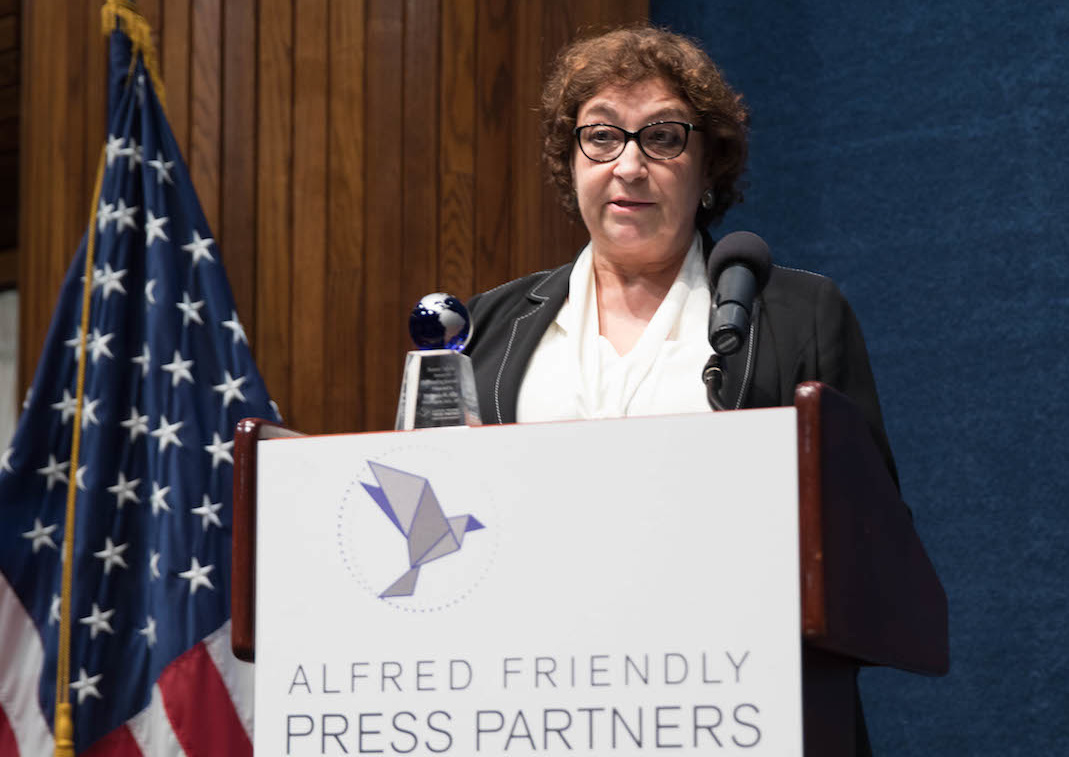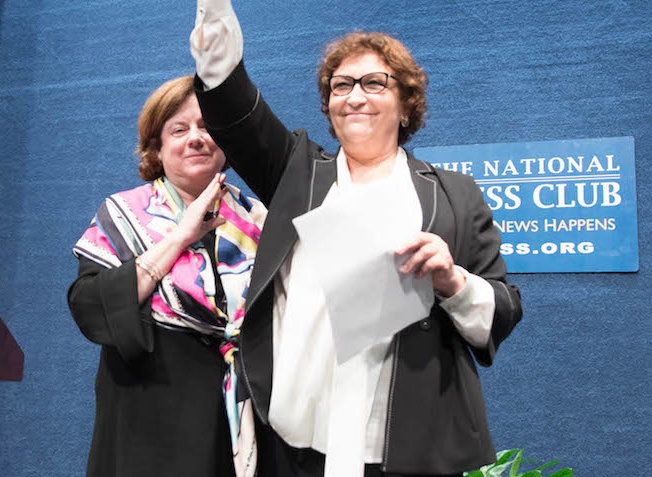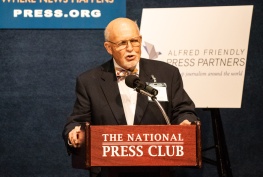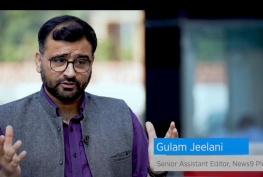
“Widespread corruption of Russian journalism became one of the reasons that Democracy failed in my country,” Albats remarked.
Yevgenia Albats, the editor of one of the few remaining independent news outlets in Moscow, said the Alfred Friendly fellowship in 1990 gave her an appreciation of journalism ethics that guide her to this day.
Albats spoke during the Class of 2017 graduation ceremony at the National Press Club in Washington on Sept. 8 after winning the Susan Talalay Award for Outstanding Journalism, given each year to a former Friendly Fellow. Talalay is a former director of Alfred Friendly Press Partners and board member of the Alfred Friendly Foundation.
Albats, a political scientist, the author of four books, and a radio talk show host as well as the chief editor of The New Times, recalled the day in 1990 when Talalay called her to invite her into the fellowship program. At the time, she was a reporter at the frontline newspaper of the time, Moskovskiye Novosti, covering the USSR’s “political police,” the KGB.
To train with Fellows in her class and work at the Chicago Tribune, she had to leave behind a husband and a 2-year-old daughter for six months. She’d never been outside the USSR, “never been to a bank, never had a checking account or a credit card, and I’d never seen an ATM that gave you dollars out of a cement wall.” The biggest cultural shock after leaving the Iron Curtain was her first visit to a supermarket with countless items to choose from, which left her “practically unconscious.”
“Yet, the most important things laid outside the shopping area — in the area of human ethics, professional, journalistic ethics, first and foremost,” Albats said.
In Russia, she said, “Immorality went through the fabric of the society, and a propaganda journalism based on lies and fabrication was a manifestation of that immorality.”
During the orientation at the beginning of the Alfred Friendly fellowship, journalistic ethics were at the core of all the discussions: You can not accept gifts; nobody can pay your lunch.
“It seems simple, but in fact it is not,” she said. “Independence from any power, whether it is a power of authority, or power of money – is a prerequisite for a true and honest journalism.”…
“Journalistic corruption is endemic in developing countries, it leads to the dependence of a journalist upon lobbyists, special interest groups, and authoritative people. As a result readers are misinformed and unable to make free choices, journalism is no longer a public service aimed at the common good, but rather a form of intellectual prostitution.” …
“This what I learned by heart while a Friendly Fellow. It made my life extremely difficult in post-communist Russia, where censorship got replaced by the power of money. It hardened my character, created a lot of enemies, among colleagues first and foremost, but at the same time that principle has become an obereg,(amulet), a lifelong protection, a guiding path which secured the respect both of my readers and my enemies.”…
“Widespread corruption of Russian journalism became one of the reasons that Democracy failed in my country. I was fighting a state that was supposed to serve a check on the rich and powerful, but turned out not to be either able or willing to fulfill its obligation. As a result the majority of electronic and print media in the country are under the control of the state.”
Albats started managing The New Times, a political weekly newsmagazine, more than 10 years ago, and the political weekly became one of the most respected publications in the country.
“We ran one of the best investigations in the country,” she said. “And paid a price – one of my reporters was deported from Moscow. We lost all advertisers; and one investor after another. By last May it became impossible to distribute the print edition around the country. And we shut down the print edition, but remain on the web. I got thousands of letters of support when this happened – readers want us to keep putting out the material we have. And so we shall.”





